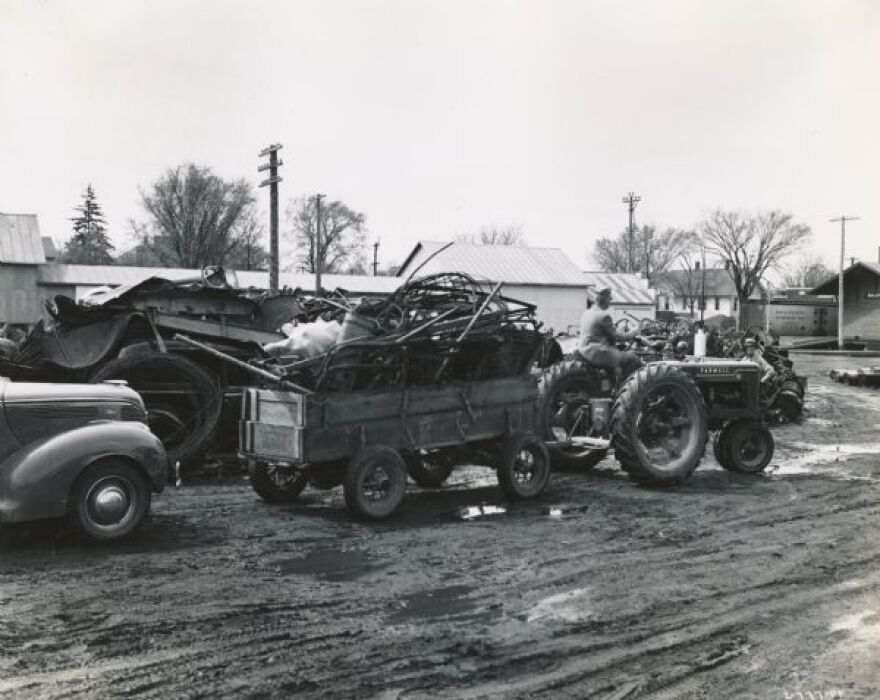World War II scrap metal drives were an integral part of how people on the home front experienced the war. Much of the metal came from old automobiles, but where some of those old automobiles came from turned out to be quite a surprise.
Classic car shows are very popular across the Northwoods, and many people enjoy looking at stylish car designs from bygone eras. One thing that a casual observer at any of these shows may notice is that while there are lots of automobiles from the muscle car era of the 1950s and 1960s, there are considerably fewer vehicles from the pre-World War II era. This is not a simple matter of choice or a consequence of the passage of time. The major reason that there are fewer automobiles from the 1930s and earlier is because of World War II scrap metal drives.
In 1942, government officials announced, “that all old jalopies, worn-out automobiles unsuited for transportation, must be scrapped to furnish weapons of war for our armed forces, under an edict issued by the automobile graveyard section of the War Production Board.” Many Wisconsin residents stepped up to do their part, but one enterprising car dealer in Shawano saw an opportunity to cash in.
Albert Radtke had operated a new car dealership in Shawano since 1927. The used car business had carved out a significant market niche after the First World War, but not all the trade-in vehicles that Radtke took in were in good enough shape to profitably resell. Radtke claimed that he sold around 200 new cars per year and with almost every sale he took in a used car in trade. It a car was resalable, Radtke would put it on the lot. However, in the case where a used car had little market value, Radtke had a different solution. He would strip the cars of any useable parts then wait for winter. When freezing weather came, Radtke would tow the junk cars out to the middle of an unnamed frozen lake near Zachow and leave them there. When the spring thaw came, the cars sank to the bottom. By 1942, Radtke had been doing this for fifteen years. There were over 500 cars in that lake.
As the wartime scrap metal drives got underway, Representative N. Sherer for Milwaukee’s graveyard section got wind of the car-filled lake and considered it a gold mine. He arranged for local farmer Philip Whitman to recover the vehicles. Radtke agreed to show Whitman which lake they were in, but on one condition. Radtke, who did nothing to help, insisted on being paid $1.50 for every car that Whitman snagged with a grappling hook and pulled out with his tractor.
In 1942, scrap automobiles sold for $15 apiece, and scrap metal from a single demolished vehicle, it was estimated, could be processed into 35 50-caliber machine guns, so it was worth Whitman’s time to do this. If nothing else, it was certainly worthwhile to the environmental health of the lake as he dragged 15 cars out in the first day alone.
Did Whitman recover all the classic automobiles or do some remain preserved in the muck? No one really knows. But, given Radtke’s behavior, it makes one wonder what other treasures might remain at the bottom of Wisconsin’s lakes.





